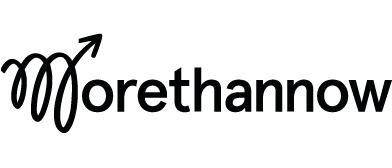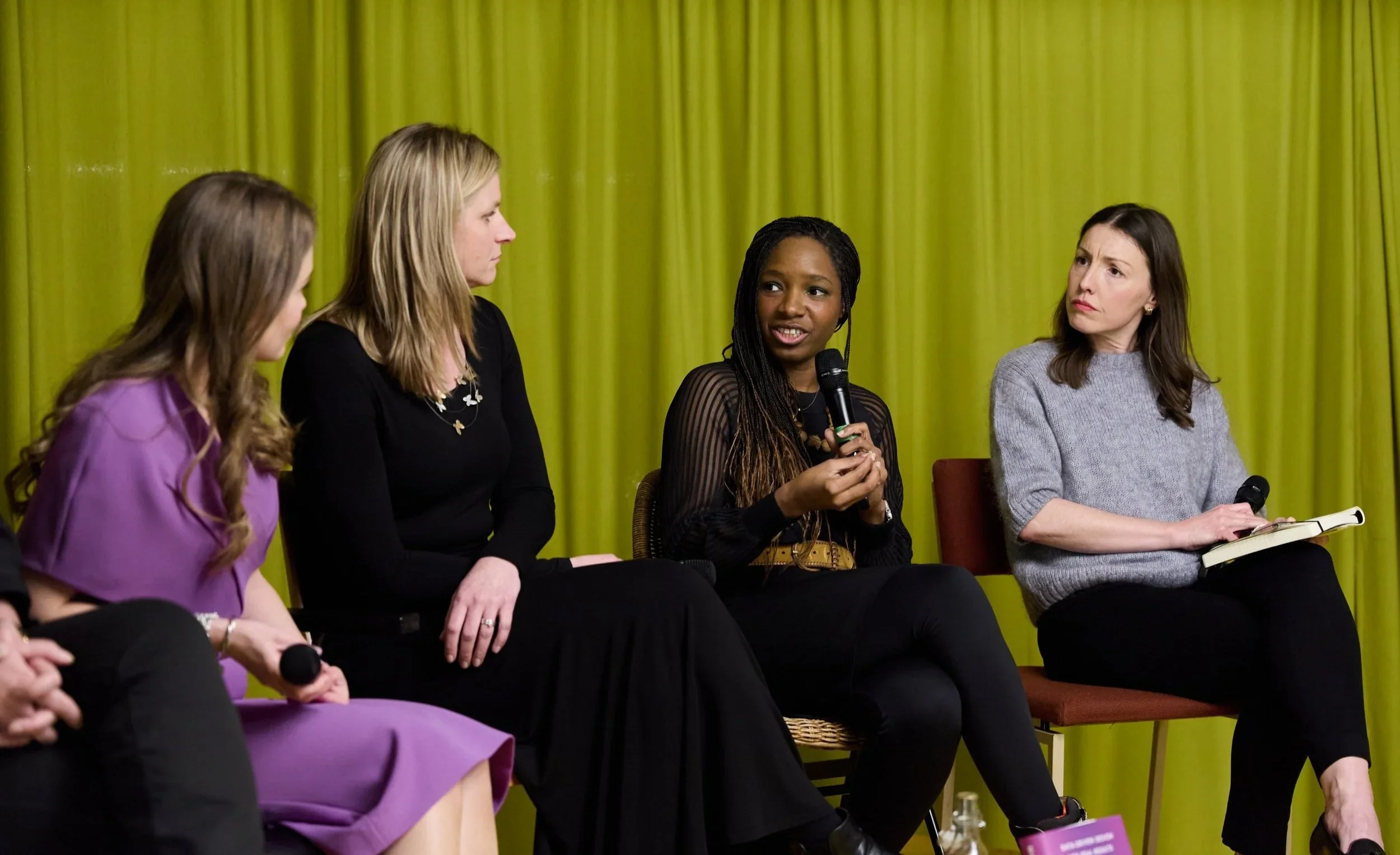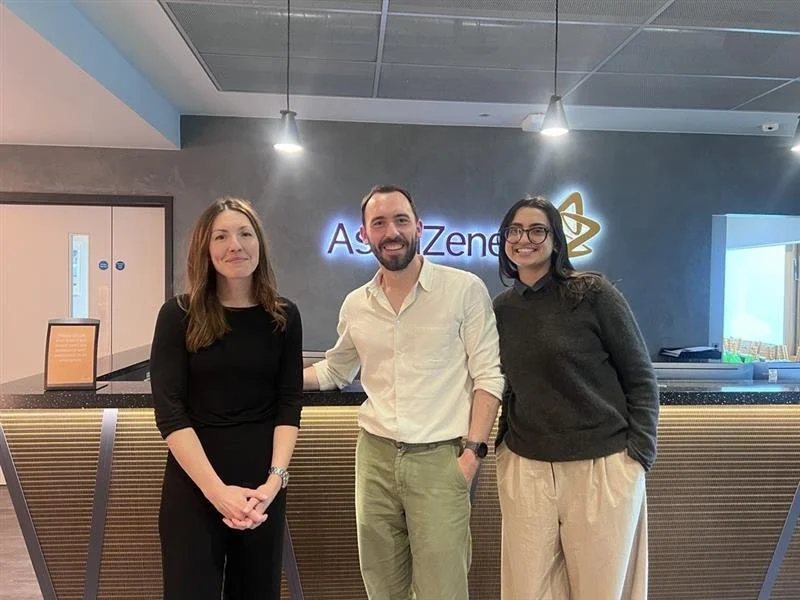The Experimenter Series – Talent Attraction at AstraZeneca with Becky Pulley and Karin Kindstrand Lyckemalm.
The Experimenter Series is a collection of interviews with MoreThanNow’s partners, from academic ones to organisational, who have completed experiments in organisations with us. This time, we speak to Becky Pulley and Karin Kindstrand Lyckemalm from AstraZeneca.
AstraZeneca has been a long-term collaborator of MoreThanNow, sharing our passion for experiments. Together, we conduct pioneering research in their workplace and have recently completed an experiment on Talent Attraction. This is one our favourite case studies, because there was such a direct link between our initial trial on employer brand messaging, the roll-out on AstraZeneca’s website, followed by a 2x real-world increase in traffic.
I’m Gus Lindemann, a Senior Behavioural Scientist at MoreThanNow, where I started the Experimenter Series now four years ago. This series featured partners from Harvard, INSEAD, LSE to Nationwide, Ericsson and Novartis. I still have a strong passion for sharing robust research with the world so we can all learn together, hence why we’re breathing new life into the series. Let’s get stuck into it!
the case study
Research focus: Employer Branding and effectiveness of talent attraction pillars.
Method: Randomised Control Trial
Headline findings: This experiment demonstrated that when candidates read pillars about either patient-centricity or learning and development, they engaged in 8% more job-seeking behaviour overall compared to a pillar on being one’s best self at work. This effect is most pronounced among women and ethnic minority candidates, who engage in 23% and 25% more job-seeking behaviour when they see the patient-centricity and learning and development pillars, compared to the best-self pillar, which was an inclusion message.
Real world impact: The research clearly demonstrates that candidates, especially those from ethnic minority groups, did not react positively to our inclusion message. Our theory is that this reaction is driven by reactance related to the message being perceived as superficial. These findings informed our recommendation to make I&D feel more tangible, supported with evidence as to how AstraZeneca truly does champion this value, in employer brand materials. This recommendation translated to profound real-world impact: after AstraZeneca renamed their ‘Inclusion and Diversity’ page to ‘Our People’ and added more detail as to why and how they advocate for inclusion, traffic increased twofold.
the interview
Gus: Thanks so much Karin and Becky for taking the time to do this. We’re reviving our Experimenter series and are excited to be kicking this off with you. By way of introduction, could you tell me a bit about yourselves and what your role is at AZ?
Karin: Thanks Gus! My name is Karin Kindstrand Lyckemalm, and I’m based in Gothenburg, Sweden. I’m an Associate Director in our Global Inclusion and Diversity team, and I’ve been leading projects around the Behavioural Science Trials for AZ. I have been working closely with our Talent Acquisition team and Becky on this.
Becky: I’m Becky Pully, the Global Employer Brand Lead here at AstraZeneca, based out of Cambridge, U.K. We did this project together last year with MoreThanNow and Karin. Really pleased to be doing this interview together!
Gus: I’m so pleased to be talking to you both! How did you get introduced to behavioural science and experiments in an organisational setting? What was your first impression of this, as it is quite different from the traditional approach?
Karin at our ‘Make Work Fair’ Book launch event in early 2025, with MTN’s Managing director, Katryn Wright.
Becky: It’s very different! I got introduced to it by Karin and the team, who were championing it. My manager Sarah Gayle is the I&D sponsor for Talent Acquisition and spotted this as a great opportunity. When it comes to Employer Brand messaging, we often get push back from people saying things along the lines of: “I don't think these specific words are going to resonate with different audiences and different people from different backgrounds.” Seeing that, AZ is a science-driven company, this was the perfect opportunity for us to gather causal data to see if those claims are correct or if they are just assumptions.
Karin: Our HR SVP Centre for Excellence Lead had come across MTN and was interested in testing this science-led approach. I then got the opportunity to lead these projects.
Gus: How did you find the initial stages of setting up the experiment? We find it often the most difficult part.
Karin: Our objective was to identify three moments in the recruitment process where, potentially, we could make small adjustments that would postively impact the inclusiveness of process and behaviours. One of those key moments was before people apply. When we found that key moment, we involved Becky and the team.
Becky: I remember in the early stages when we just started talking about it, we had various ideas and would get very excited because we could think of so many things we wanted to test. Finally, the deciding factor was where the results would have the biggest immediate impact. As much as we would’ve loved to have done all the thousands of experiments that we threw in your direction, this one felt like the biggest opportunity.
Gus: That urge to experiment with everything never goes away! Becky, this was your first experiment, whereas Karin, you’ve done quite a few with us. How did you find the process and the whole experience?
Becky: Honestly, it was more straightforward than expected. Once we knew what we wanted to test, and especially with the great guidance from the team, it felt like there was a formula to make it happen. We felt in the safe hands of the MTN team, because with other partners we’ve worked with in the past, it sometimes feels like we're the ones providing a whole framework of what it is you're trying to do. You knew exactly the right questions to ask to ensure we got the right results, making it feel like it wasn’t too much of a heavy lift from our side. The team that we pulled together to work on it was equally excited and interested as well, as it was the perfect balance between creativity and data for us.
Gus: We’re super pleased to hear that. I always find our approach quite different from a more traditional consulting route, because with us you produce very concrete, causal data.
Becky: Especially because a company such as AZ, which is very collaborative, we take on everyone’s feedback and input. But when it comes to people’s gut reactions to specific phrases, it can be difficult to find the middle ground where everyone feels confident.
Whereas an experiment gives you the ability to say, we need to go in this direction. When you take the emotion out of language and put the data behind it, we can get things done much quicker. So, it helped us a lot.
Also, when we rolled out the messaging that worked in the trial, we saw a 200% increase in traffic and a 50% increase in engagement with people on the ‘Our People’ page on our careers website. And we’d done nothing to push the audience in that direction other than change the title of that page and the content that was on it. It showed that we needed these couple of data points to allow us to make the changes that actually worked, which was very powerful.
Katryn Wright, James Elfer and Priya Gill from the MTN team at AstraZeneca’s offices.
Gus: Especially with Inclusion and Diversity, people want to ensure they’re doing the right thing, so it’s great to hear how data can help facilitate that. How did the results land internally, and were you surprised by any of the findings?
Karin:For me it wasn’t a huge surprise, but just to your point Becky, it was helpful being able to go back to the business and colleagues and say that some of the things we thought were correct in the last few years, are not aligned with what this data is showing us, and that we now know what we should do instead. And that landed really well!
Gus: That’s great! In previous interviews, I’d always ask about what barriers partners had faced in conducting experiments. But I think that AZ is unique, because, next to being a pharmaceutical company, you already have a scientific approach internally.
Becky: Being a pharmaceutical company definitely helps. But this approach significantly sped up the process of finalising our Employee Brand messaging, as we had the scientific research to prove what worked well. In general, everyone's been so interested in the research and the output.
Gus: That’s good to hear! What is the next thing you’d like to experiment with?
Becky: I’d love to test the messaging framework for each of our business areas, or the equal opportunity statement. There is always a huge amount of conversation across the whole of the HR and Talent Acquisition industry around equal opportunity statements, whether it’s good to have it there, or if it’s doing more damage than we intend it to.
Karin: I’d love to do an experiment with a candidate-facing intervention at the interview stage, to see how we can best support and prepare candidates to perform their best during interviews. But next to doing new research, it’s important to recognise what MTN and Becky have done beyond getting the results. For me, it’s crucial to implement the findings in an impactful way that makes a difference. I also find it important to take the learnings we have gained from past trials and get more advanced with our experiments to build up our total knowledge base.
A massive thank you to Becky and Karin for sharing their brilliant insights with us and for their partnership. Also a big thank you to AstraZeneca in general, and we look forward to continuing our research on making the world of work better for all, one experiment at a time!


